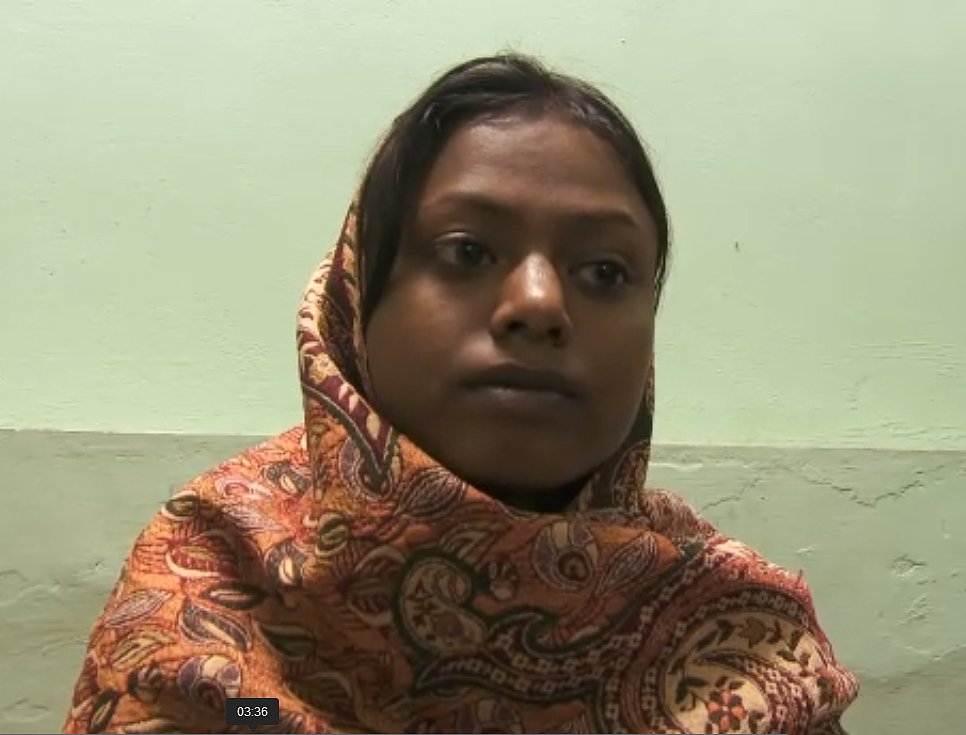Slave traders took girls as young as 11 from an Indian plantation that supplies tea to Tetley and sold them on to a life of abuse as domestic servants, an investigation has revealed.
Auditing by the Ethical Tea Partnership, which certifies estates for some of the biggest names in the industry, including Twinings and Mars Drinks, failed to detect the trafficking.
An Observer and Guardian investigation set out to track the traffickers from Assam to the national capital, Delhi. At least 21 people were rescued in a series of raids. The results can be seen in a GuardianInvestigations documentary.
One young woman, 19-year-old Somila, was found with minutes to spare after she called her father – who was travelling with the documentary team – to say the traffickers were threatening to sell her into prostitution in Bombay.
with the documentary team – to say the traffickers were threatening to sell her into prostitution in Bombay.
Somila, who was bought by her final owners for £250, described how she had suffered serious abuse and spoke angrily about the traffickers who lured her from Nahorani. "They should realise that they cannot separate daughters from their parents and make us fools. They speak lies and make us fools. They cheat us," she said.
Tea companies promised action after the Observer first exposed the slave trade from Assam's tea estates last year, but little has changed. Kailash Satyarthi, founder of the Bachpan Bachao Andolan child rescue movement, which helped to free the girls, said companies had to take responsibility. "The owners of these international tea estates don't care for these people, they don't pay them minimum wages. Forget about the decent wages, they don't pay the survival wages," he said. "The reality is abuse, the reality is a kind of sexual exploitation, the reality is endless slavery," he said.
Nahorani is one of a group of 24 estates in Assam owned by Amalgamated Plantations. The largest shareholder, with a 49.66% stake, is Tata, which bought Tetley for £271m in 2000. It is one of the world's richest companies, worth £60bn.
The International Finance Corporation (IFC) – whose remit is to create the opportunity for people to escape poverty and improve their lives – invested £4.75m to take a 15.6% stake, arguing that it would be "promoting competitiveness in an industry that is vital to the Indian economy". The IFC's own watchdog is investigating complaints about working conditions on the estate and a workers' share-buying programme.
Wages in Assam are set across the board by a process of collective bargaining. The owners say they have secured permission to top up the wage with benefits in kind to achieve the legal minimum, but critics say many of those benefits are statutory obligations. The deal means that all tea workers in Assam – including those on estates certified by the ETP, Rainforest Alliance and Fairtrade – receive the same rate of 94 rupees. The tea producers say they can afford no more, although in the last quarter Tata Global Beverages made profits of £11m.
Tetley is the UK's most popular brand, and is ranked second in the US and the rest of the world. The company says 45m cups of Tetley are drunk in 70 countries worldwide every day. There is no suggestion that Tetley was aware of any slavery or trafficking. In its mission statement, Tetley insists: "We don't just do as we like. We do what's right for our tea drinkers, our team and our world. We believe our success must not be at the expense of the people or the environment that make that success possible."
A spokesman for Tata Global Beverages confirmed that Tetley bought tea from the Nahorani estate for the international market, but not for the UK. "Tata Global Beverages is committed to the fair and ethical treatment of people across our supply chain and we take their welfare seriously," it said in a statement.
The Ethical Tea Partnership's executive director, Sarah Roberts, said: "ETP and its members oppose all forms of abuse, discrimination, exploitation and manipulation of children and adults."
Deepak Atal, managing director of Amalgamated Plantations, said the company had been unaware of the trafficking. "APPL is against any form of abuse on children and we will make every effort with external and government agencies who specialise in addressing child trafficking," he said.
The World Bank Group said human trafficking was a "tragic crime" and those who engaged in it should be brought to justice. It said it was troubled by the allegations and was investigating.


 Votes : 0
Votes : 0



 The girls were taken from the Nahorani estate in Assam, owned by a consortium that includes Tetley's parent company,
The girls were taken from the Nahorani estate in Assam, owned by a consortium that includes Tetley's parent company, 





